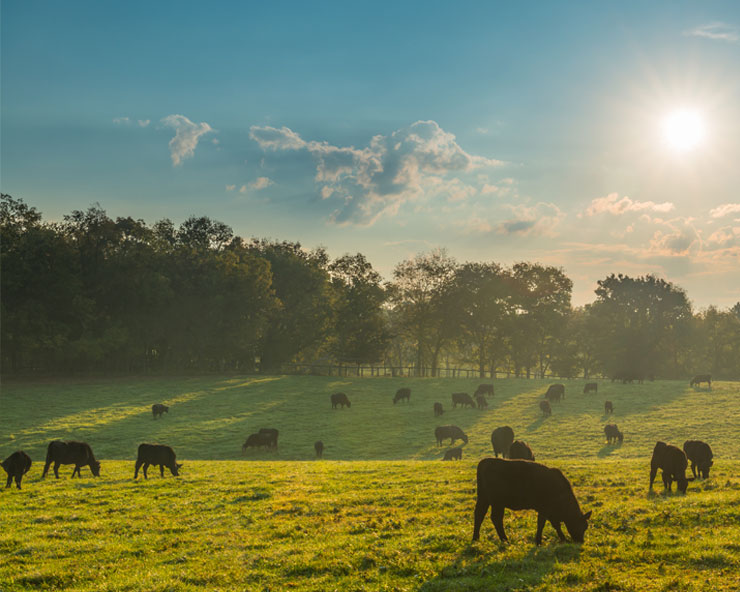For organic and alternative farmers, grazing animals is a large part of their feed program. Pasture is convenient and allows for diversified grazing of lands that may not be useful for raising crops. It is important to carefully manage your pastures to prevent overgrazing, soil depletion, and health problems. With proper care, your pastures can improve the health of your herd and better production.
Soil and Plant Health
When considering pasturing your livestock, it is important to consider the land on which they will be grazed. Grazing should be managed to protect plant life. Plant life should be diverse but managed to avoid toxic plants such as endophyte tall fescue. Healthy plants will prevent erosion and water run-off. Properly mineralized soil will allow for better growth of plants and result in healthier animals. If the soil quality is poor, the plants will suffer, and so will the livestock. Avoid letting animals graze forage down below 5-6 inches to not damage the plant. Your livestock will thrive by carefully managing your pasture’s soil and health.
Rotational Grazing
Rotational grazing is one common way to promote soil and plant health. While continuous grazing may carry benefits such as lower material costs and management, the land will not be used most effectively. Using simple or intensive rotational grazing will bring the most benefit to your pasture and animals. Simple rotational grazing allows for increased pasture use, with rest periods to increase plant growth. It can increase forage growth by 20% compared to continuous grazing.
Intensive rotational grazing is even more effective but requires more exhaustive management and higher fencing costs. With intensive rotational grazing manure is more evenly distributed and stocking densities can increase and allow for the highest forage production and use.
Parasite Resistance
Grazing animals can also assist in preventing parasites when managed properly. Rotate animals between pastures often, between 4-7 days, depending on the wetness of the pasture. It is also important to carefully manage stocking density to prevent overgrazing but remain the most cost-efficient. One way to aid in preventing parasites is to graze horses or cattle after small ruminants to disrupt the life cycle of some parasites. It would help if you also considered weather patterns, as parasites thrive in cool, moist environments but will die quickly when it is hot and dry.
Pasture management carries many benefits for farmers and ranchers alike; less soil erosion, better water usage, increased pasture growth and usage, and parasite prevention. If you are looking to transition to a pasture management system or improve your current system, check out the resources below for an in-depth look at pasture management for organic and conventional farmers alike.
Resources:
UMN: Grazing and pasture management for cattle
USDA: Organic Livestock and Pasture Management
LPELC: Pasture Management on Small Farms
PSU Extension: Grazing 101: Sustainable Pasture Management for Livestock
ECO Farming Daily: Livestock Grazing – The Organic Farmer’s Dilemma
USDA Organic: Pasture Management for Organic Ruminant Livestock


Everything is very open with a really clear description of the challenges. It was definitely informative. Your site is extremely helpful. Thank you for sharing!